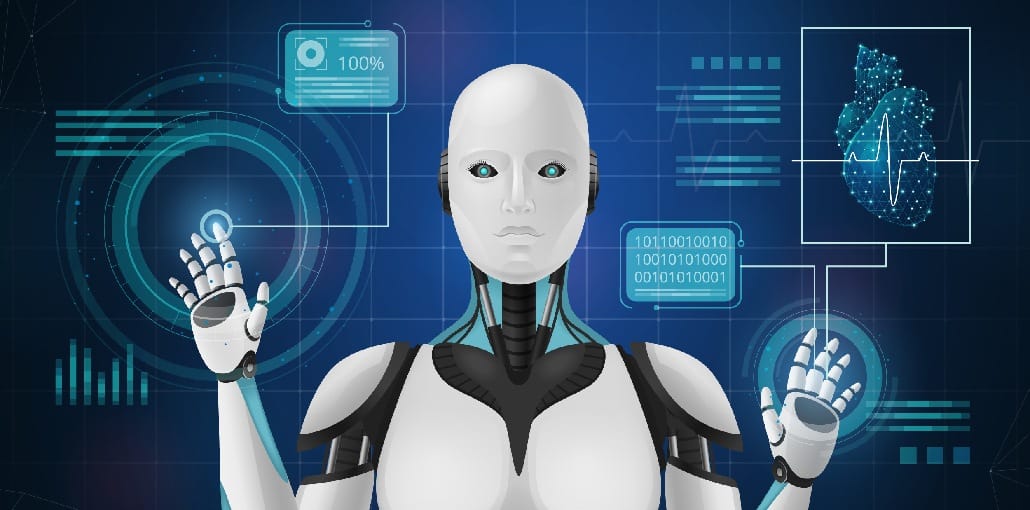Artificial Intelligence (AI) is more than just a buzzword; it’s a transformative force that is reshaping the way we live, work, and interact with technology. From healthcare to education, transportation to environmental conservation, and business to customer experiences, AI is making a profound impact in numerous areas, all with the aim of making our world a better place. In this blog post, we will delve deeper into these five key areas and explore how AI is driving positive change across the globe.
1. Enhancing Healthcare:
The healthcare sector has witnessed remarkable advancements thanks to AI technologies. One of the most prominent ways AI is changing healthcare for the better is through the development of diagnostic tools. AI-powered systems can swiftly and accurately analyze medical images, including X-rays, MRIs, and CT scans, to detect diseases and abnormalities. This not only expedites the diagnosis process but also significantly enhances accuracy, reducing the chances of misdiagnosis.
Moreover, AI is playing a pivotal role in revolutionizing the early detection of diseases such as cancer. Machine learning algorithms can analyze large datasets of patient records, genetic information, and clinical trials to identify potential risk factors and predict disease onset. Early detection translates to earlier intervention and improved treatment outcomes.
But the influence of AI in healthcare goes beyond diagnostics. It’s also instrumental in drug discovery and development. Pharmaceutical companies are harnessing AI to analyze vast datasets, identify potential drug candidates, and simulate their effects. This not only accelerates the drug development process but also leads to the creation of more effective medications.
Additionally, AI-driven telemedicine solutions are expanding access to healthcare, particularly in underserved areas. Patients can now receive medical consultations and advice remotely, reducing the burden on healthcare facilities and improving overall patient care.
2. Revolutionizing Education:
Education is another realm where AI is making a positive impact by revolutionizing the learning experience. Personalization is the key. AI-powered educational systems can adapt to the unique needs and learning styles of individual students. Through continuous assessment and data analysis, these systems provide customized lessons and feedback, ensuring that students receive the support they require to excel.
Furthermore, AI is streamlining administrative tasks for educators. From grading assignments to managing schedules, AI automation is freeing up valuable time for teachers and professors, allowing them to concentrate more on teaching and mentorship. This shift is set to transform education into a more efficient and effective system that caters to the diverse needs of students.
3. Improving Transportation:
In the realm of transportation, AI is poised to change how we move from one place to another, making our journeys safer and more efficient. Self-driving cars are perhaps the most prominent example. These vehicles, equipped with AI algorithms, have the potential to reduce accidents caused by human error, which accounts for a significant portion of road accidents today. Furthermore, they have the potential to ease traffic congestion by optimizing traffic flow.
Beyond personal vehicles, AI is enhancing public transportation systems as well. AI algorithms can analyze data on routes, schedules, and passenger traffic to optimize public transportation services. This means shorter travel times, less overcrowding, and more sustainable transportation options, ultimately benefiting both commuters and the environment.
Additionally, AI-driven logistics and supply chain management are enhancing the efficiency of transporting goods. Real-time tracking, predictive maintenance, and route optimization are reducing transportation costs and environmental impact.
4. Advancing Environmental Conservation:
Environmental conservation is one of the most critical challenges of our time, and AI is proving to be a powerful ally in this endeavor. AI-powered sensors, drones, and satellites are monitoring ecosystems, wildlife populations, and environmental conditions like never before. This real-time data is essential for effective conservation efforts.
For instance, AI can be used to track endangered species, monitor deforestation, and detect illegal fishing or poaching activities. Machine learning algorithms analyze the collected data to identify patterns and trends, helping conservationists make informed decisions.
Moreover, AI is playing a crucial role in climate change mitigation. It helps industries reduce their carbon footprint by optimizing energy consumption and resource usage. For instance, AI can optimize the operation of power plants, factories, and buildings to minimize energy wastage. This not only reduces greenhouse gas emissions but also lowers operational costs.
5. Enhancing Customer Experiences:
In the business world, AI is transforming customer interactions, creating more personalized and satisfying experiences. Chatbots and virtual assistants are on the front lines of this revolution, providing instant support and information to customers, regardless of the time of day. This not only improves user experiences but also reduces the workload on customer service teams.
Furthermore, recommendation algorithms are changing how businesses connect with their customers. By analyzing user behavior and preferences, AI can suggest products or services tailored to individual tastes. This personalization not only increases customer satisfaction but also drives sales and revenue growth.
AI also enables businesses to gain valuable insights into consumer behavior through data analytics. By understanding customer preferences and trends, companies can refine their products and services, improving overall quality and competitiveness.
Conclusion:
In conclusion, the impact of AI on our world is profound, and its potential for positive change is immense. Whether it’s through enhancing healthcare, revolutionizing education, improving transportation, advancing environmental conservation, or enhancing customer experiences, AI is making significant strides in improving our lives. As AI technology continues to evolve, we can look forward to even more innovations that will shape a brighter, more efficient, and more sustainable future.
The transformative power of AI is undeniable, and we’re just scratching the surface of its potential to change our world for the better.
As AI continues to evolve, it is essential to stay informed about the latest developments and applications of this technology. The possibilities are endless, and the future is bright with the promise of positive change driven by AI.

